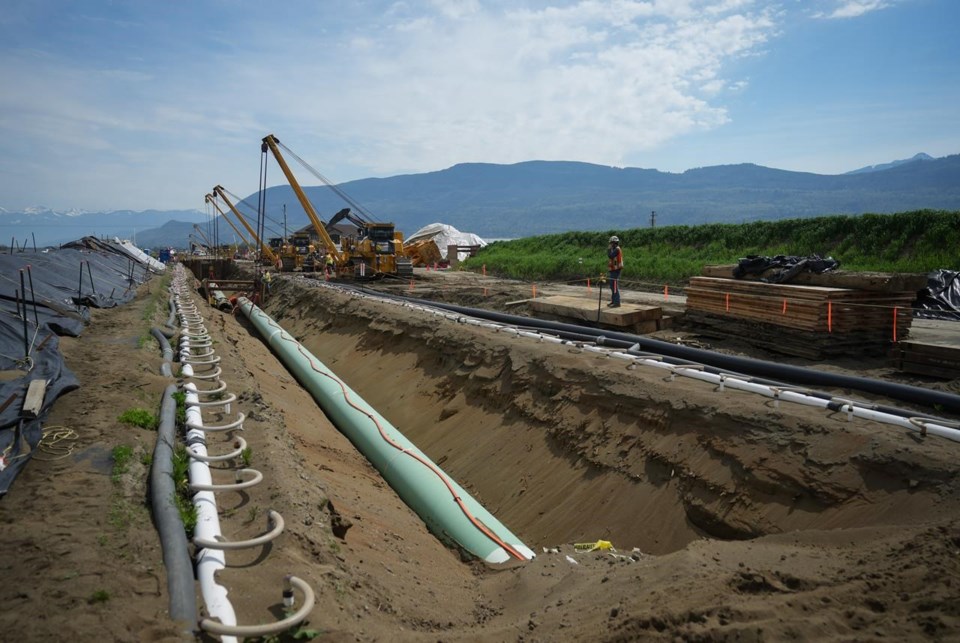CALGARY — The Canada Energy Regulator has approved preliminary interim tolls that would see oil companies pay nearly twice as much to ship crude on the expanded Trans Mountain pipeline as what was estimated in 2017.
In a decision issued Thursday, the regulator approved an initial tolling structure that will allow Trans Mountain Corp. to begin charging oil shippers once the pipeline expansion project, which is still under construction, becomes operational early next year.
The regulator said its preliminary decision is intended to ensure a tolling structure is in place in time for the pipeline's startup. But it said it still plans to complete a more detailed assessment, which will include a formal hearing, before making a final decision.
The Trans Mountain pipeline, which was bought by the federal government in 2018, is Canada's only oil pipeline to the West Coast. Its nearly complete expansion project will increase the pipeline's capacity by 590,000 barrels per day to a total of 890,000 barrels per day, improving access to markets for Canadian oil companies.
But the newly approved benchmark fixed toll of $10.88 per barrel means oil companies will be paying nearly twice the amount that Trans Mountain had previously estimated back in 2017.
Trans Mountain Corp., a Crown corporation, applied for permission to increase the tolls in an effort to recoup some of its costs after the pipeline expansion project's construction costs spiralled to $30.9 billion from a 2017 estimate of $7.4 billion.
Oil companies have been pushing back against the toll increases. Some of Canada's biggest oil companies — including Canadian Natural Resources Ltd., Suncor Energy Inc. and Imperial Oil Ltd. — have registered as interveners for the formal hearing.
Uncertainty over where the tolls will end up has also cast a cloud over a possible eventual purchase of the pipeline, since contractually only 20 to 25 per cent of Trans Mountain's budget overruns can be passed on to oil companies in the form of increased tolls.
The federal government has said it does not intend to be the long-term owner of the pipeline.
The CEO of Pembina Pipeline Corp. said earlier this month the company needs more certainty around tolls, as well as other outstanding issues, before it can decide to make an offer for an equity stake in the pipeline.
The final tolls for the Trans Mountain pipeline will be determined once the project is completed and a complete cost assessment has been done.
The final tolls cannot be retroactively changed, but the interim tolls can be refunded or recovered once the final tolls have been settled on.
This report by The Canadian Press was first published Nov. 30, 2023.
Amanda Stephenson, The Canadian Press




